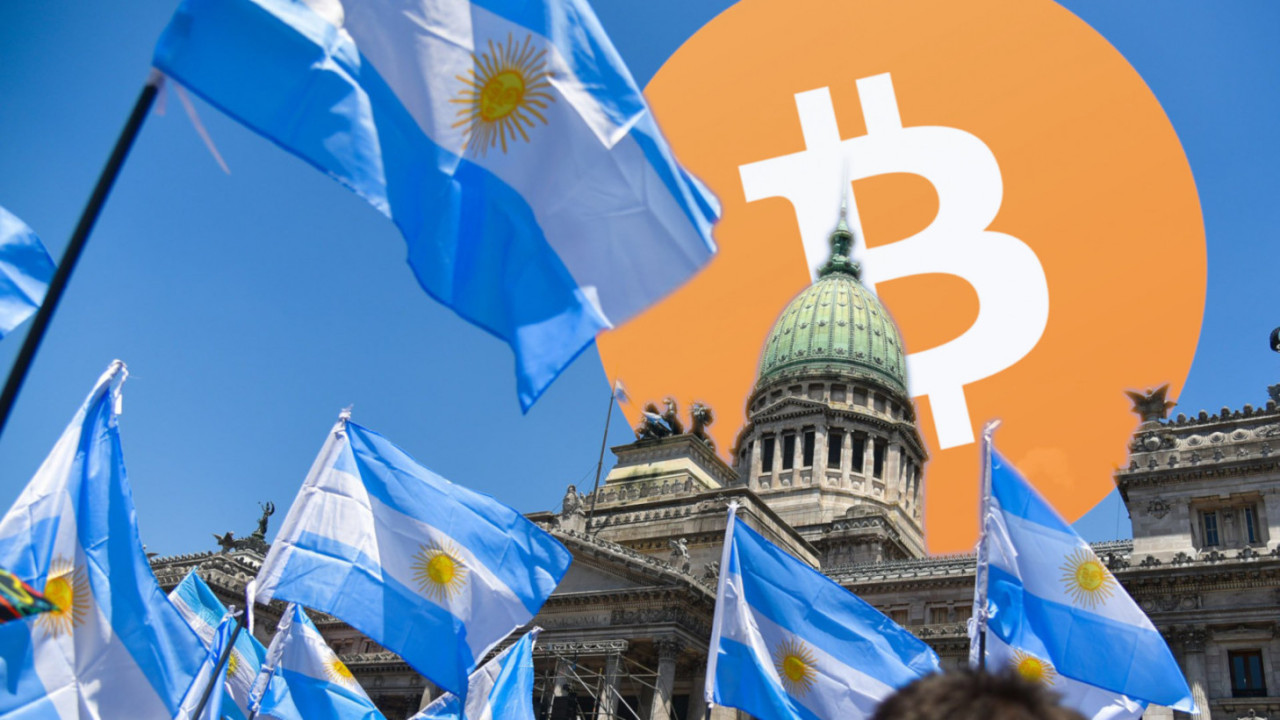Argentina’s President Proposes Bitcoin Integration and Tax Reform
13.12.2024 13:00 2 min. read Alexander Zdravkov
Argentina's President Javier Milei is pushing forward with groundbreaking reforms that could reshape the nation’s financial landscape.
His proposals for 2025 focus on greater economic freedom, including allowing citizens to transact in any currency, such as Bitcoin, alongside traditional fiat currencies. This move aims to enhance financial flexibility and reduce reliance on the Argentine peso.
Milei’s approach mirrors El Salvador’s Bitcoin adoption model but is tailored to Argentina’s specific needs. As part of his broader economic overhaul, Milei also announced plans to cut national taxes by up to 90%. This would ease the financial burden on individuals and local governments, allowing them to create more localized taxation systems.
A significant challenge remains the taxation of Bitcoin, which, according to Ricardo Mihura from Bitcoin Argentina, complicates its use as a currency. Bitcoin transactions currently face income tax on exchange rate differences, a burden not imposed on other currencies like dollars or euros.
While Milei’s advocacy for cryptocurrency has met with some resistance, his vision for financial autonomy continues to gain traction.
Argentina’s crypto initiatives are part of a broader South American trend toward digital currencies. Brazil, for example, has advanced with its central bank digital currency (CBDC), while Venezuela’s crypto market has grown rapidly. Under Milei, Argentina is positioning itself to play a key role in this regional push for crypto adoption, potentially setting the stage for further global influence in the sector.
-
1
Bitcoin Rises as Thousands of Altcoins Disappear
07.07.2025 13:00 2 min. read -
2
Bitcoin: Historical Trends Point to Likely Upside Movement
08.07.2025 16:00 2 min. read -
3
Strategy Buys 4,225 more Bitcoin, Pushing Holdings to 601,550 BTC
14.07.2025 18:34 2 min. read -
4
Bitcoin Shouldn’t Be Taxed, Says Fund Manager
07.07.2025 9:00 2 min. read -
5
Bitcoin ETFs Top $50 Billion in Inflows, Marking Institutional Breakthrough
10.07.2025 11:00 2 min. read
Here’s When the Bitcoin Cycle May Peak, Based on Past bull Markets
According to a new chart shared by Bitcoin Magazine Pro, the current Bitcoin market cycle may be entering its final stretch—with fewer than 100 days remaining before a potential market top.
Bitcoin Price Prediction: $130K in Sight After ‘Crypto Week’ Boost
Bitcoin (BTC) is once again hovering near its all-time high today as trading volumes have jumped by 13% in the past 24 hours upon breaking the $119,000 barrier, favoring a bullish Bitcoin price prediction. The top crypto has booked gains of 16% in the past 30 days and reached a new record at $123,091 earlier […]
Support Test or Breakout Ahead? Bitcoin Hovers at Key Decision Zone
Bitcoin is consolidating around $119,000 after last week’s all-time high above $123,000.
Strategy Launches Fourth Preferred stock Offering to Fuel Bitcoin Buys
Strategy Inc. (NASDAQ: MSTR) has announced the launch of its fourth perpetual preferred stock offering, marking a new phase in the company’s ongoing efforts to expand its Bitcoin treasury holdings.
-
1
Bitcoin Rises as Thousands of Altcoins Disappear
07.07.2025 13:00 2 min. read -
2
Bitcoin: Historical Trends Point to Likely Upside Movement
08.07.2025 16:00 2 min. read -
3
Strategy Buys 4,225 more Bitcoin, Pushing Holdings to 601,550 BTC
14.07.2025 18:34 2 min. read -
4
Bitcoin Shouldn’t Be Taxed, Says Fund Manager
07.07.2025 9:00 2 min. read -
5
Bitcoin ETFs Top $50 Billion in Inflows, Marking Institutional Breakthrough
10.07.2025 11:00 2 min. read


